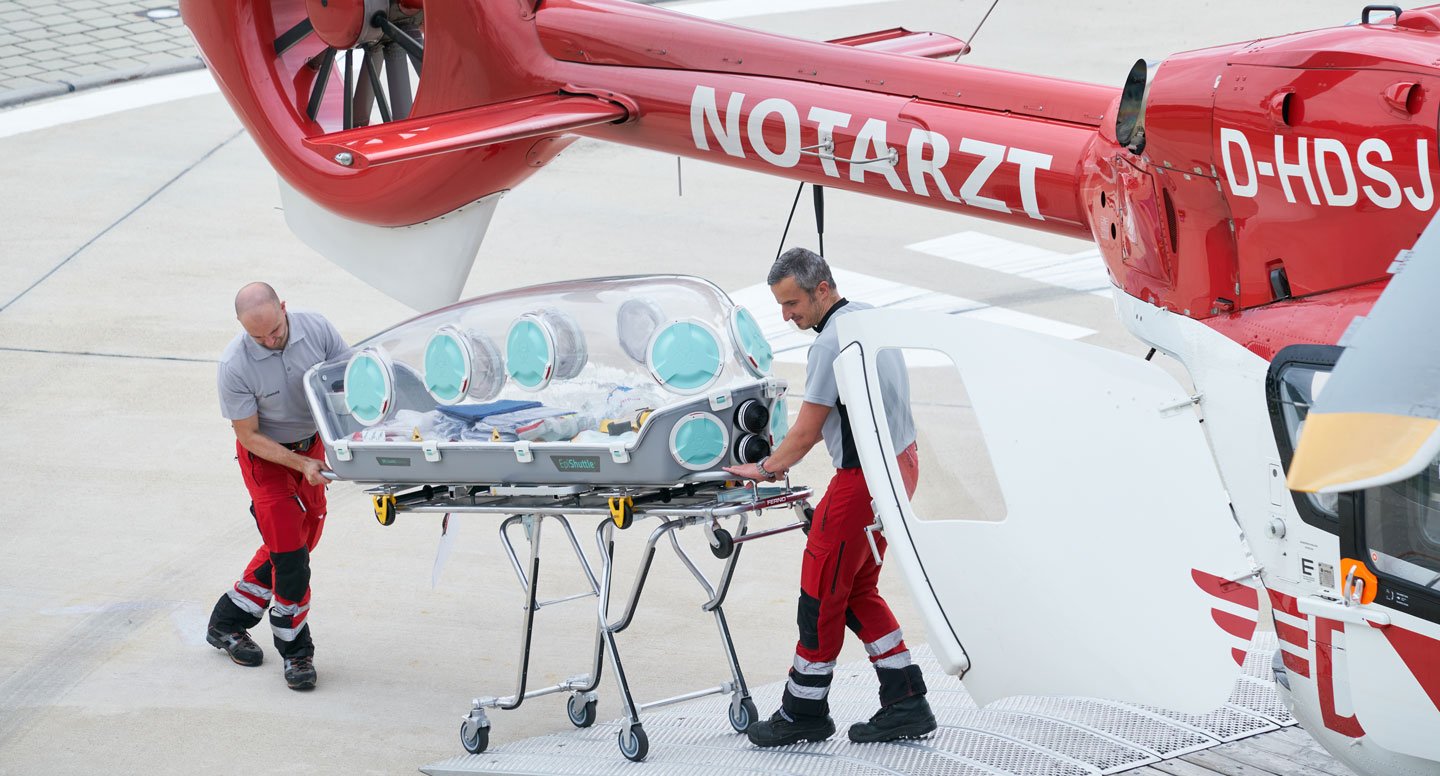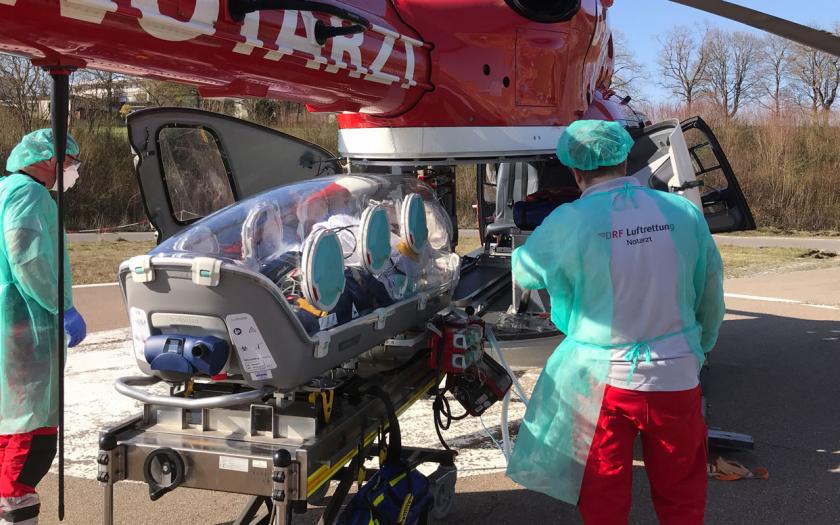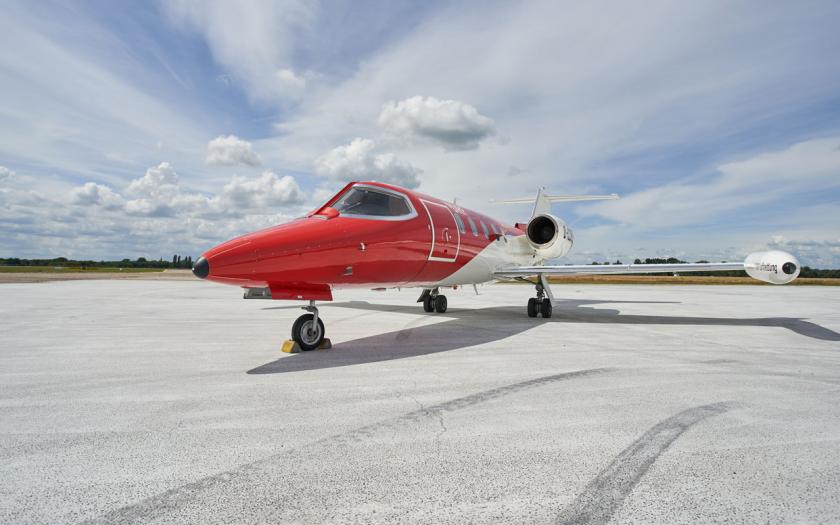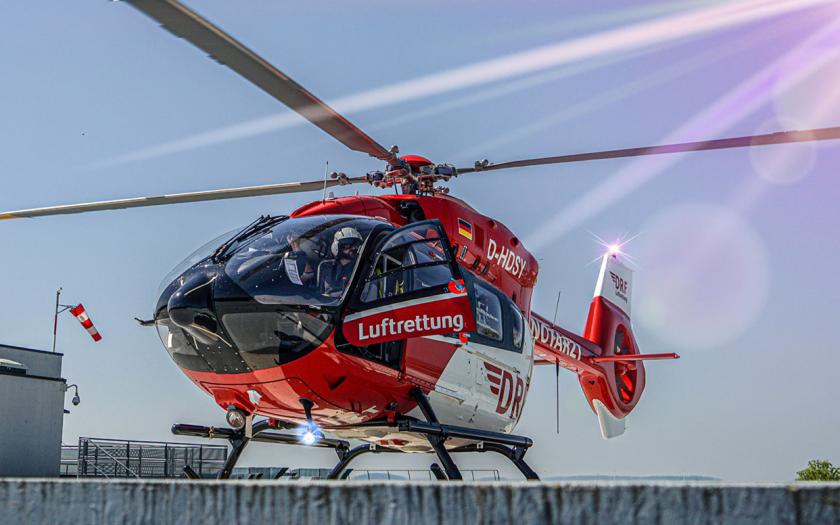Saving people’s lives is our mission. We have been committed to state-of-the-art air rescue with innovative solutions throughout Germany and around the globe, 365 days a year, 24/7, for over four decades. Much has changed during this time. But a situation like the one we are currently facing is new.

Epishuttle in use during times of the Corona Pandemic (Source: DRF Luftrettung)
In light of the coronavirus pandemic, it is essential that the DRF Luftrettung remains fully operational so that it can continue to fulfil its mission. Pandemic or no pandemic – after a heart attack or a serious accident the clock starts ticking for every patient and will determine whether they survive or recover. This also applies to travellers abroad.
Special features for repatriations
One of the main questions as the numbers of infections began to rise was how we can protect our staff? We had to develop special measures for this area on account of the long flight times for global repatriations and the special circumstances inside aeroplanes. For example, we measured the aerosols in ambulance aircraft and the crew tested a range of masks in order to produce our protective and hygiene concept. “We decided on a closed mask system to minimise the risk of infection, even during transports lasting several hours,” explained Markus Kellner, head of the mission control center.
An additional adjustment of protective measures and rapid antigen tests now enables the transport of intubated and spontaneously breathing Covid-19 patients for up to three hours. They do not need to be specially isolated to do so. Thanks to a matrix we produced ourselves, the crew can quickly and reliably determine the appropriate hygiene and protective measures for the different repatriation scenarios.

Patient transport during times of the Corona Pandemic (Source: DRF Luftrettung)
Epi-shuttles and two additional helicopters
On top of this, we introduced completely new equipment for our helicopters at the start of the pandemic: epi-shuttles are special isolation stretchers for highly infectious patients. The person on the stretcher can be connected to an intensive respiratory device via air-tight access points while being monitored and treated at the same time. Back at the start of April 2020, the first of eleven helicopters was fitted out with this equipment.
To stabilise the health systems, the “Christoph 111” entered into service at the end of March 2020. This is an intensive care helicopter, additionally stationed at Karlsruhe/Baden-Baden Airport. The first of its kind in Germany, especially for intensive care transports during the pandemic. This offer was taken up quickly, particularly for transporting patients from hospitals in France – often across very long distances to clinics in Austria.
But it was not only “Christoph 111” which was regularly flying to neighbouring countries. During the first wave of the pandemic, we performed cross-border transports by helicopter and aircraft, frequently coordinated by our own Operations Centre. Whereas land borders between countries were closed, air rescue across the border lines worked fine. Our Operations Centre also organised ground transport from hospitals to the ambulance aircraft or helicopters – not just for our own aircraft. DRF Luftrettung itself achieved 687 missions involving Covid-19 patients in 2020.
Just before Christmas, yet another rescue helicopter entered service at the Bautzen HEMS base. “Christoph 114” will back up emergency response missions in order to free up the capacities of “Christoph 62” for transferring Covid-19 patients. This shows that we are lending our support again, during this second wave – direct contact to the health authorities at federal and state level is established.
The award of the Adenauer-de Gaulle Prize
Together with Luxembourg Air Rescue (LAR), DRF Luftrettung was awarded the Adenauer-de Gaulle Prize 2020 in December. The year 2020 introduced very special challenges with the Covid-19 pandemic, which both organisations encountered extremely professionally, said Ministers of State Michael Roth and Clement Beaune to explain the decision. DRF Luftrettung and LAR took over the majority of helicopter transports of French patients to hospitals in Germany and back again, under conditions that were often not easy. Those responsible for German-French cooperation recognise a great sign of neighbourly and European solidarity, as well as an important contribution towards overcoming the coronavirus crisis.
This award makes us as an organisation extremely proud and proves to us that we are on the right path.

Learjet of the DRF Luftrettung (Source: DRF Luftrettung)

In early spring 2020 the DRF Luftrettung transported French patients to Germany and back. (Source: DRF Luftrettung)
Author
Eva Baumann - Pressereferentin
Anne Kunzendorf - Pressereferentin
